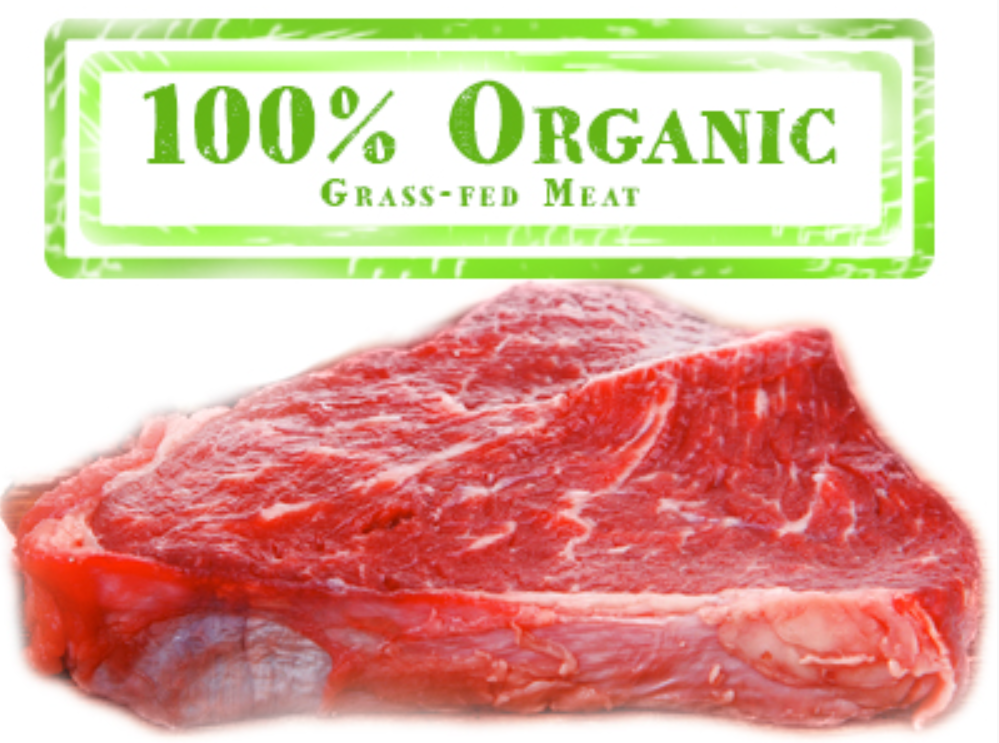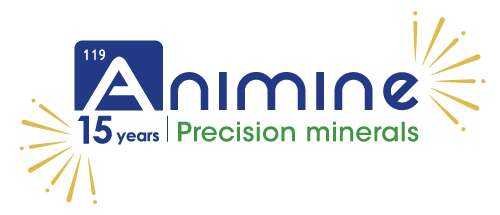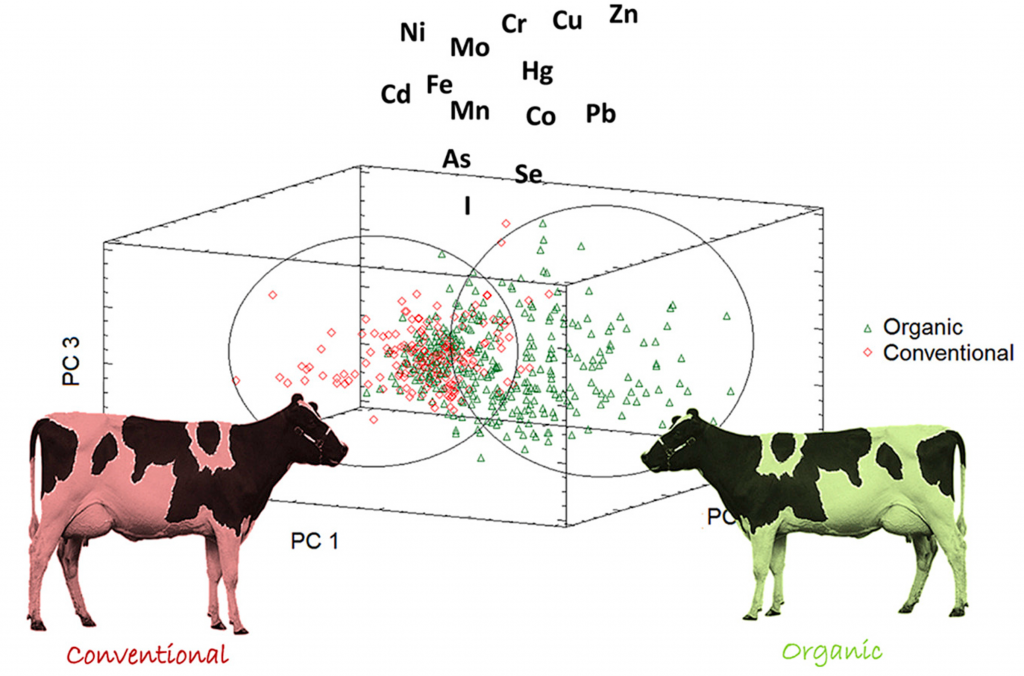> Planet
Organic food
Many studies have compared nutritional densities of conventional and organic animal products. As animals raised in organic systems are usually fed diets less supplemented with micro-nutrients, it is generally observed a lower concentration in trace minerals (Se, I, Zn, Cu, Mn) for milk and eggs.
Lower concentration of iodine in organic milk can be also explained by so-called ‘iodine antagonists’ or goitrogens in some forages like clover. Organic dairy herds are more grazing than in conventional system, and are more exposed to the composition of forages. Pregnant women and women of childbearing age should pay attention to iodine which is required for adequate thyroid hormone production, essential for brain development, particularly in the first trimester of pregnancy. In some countries, milk and dairy products are the principal contributor to iodine intake.
Free-range laying hens in organic production are more exposed to the environment than in conventional system. Molecules that are present in the top soil can accumulate in the eggs via soil-animal-egg transfers.
On the other hand, organic meat from beef, pig or poultry is generally associated with higher concentrations in essential trace minerals such as zinc or copper. One of the main factors that influences the content of mineral elements is the lifespan of the animal; animals with a long lifespan in organic systems accumulate more minerals in their tissues.


